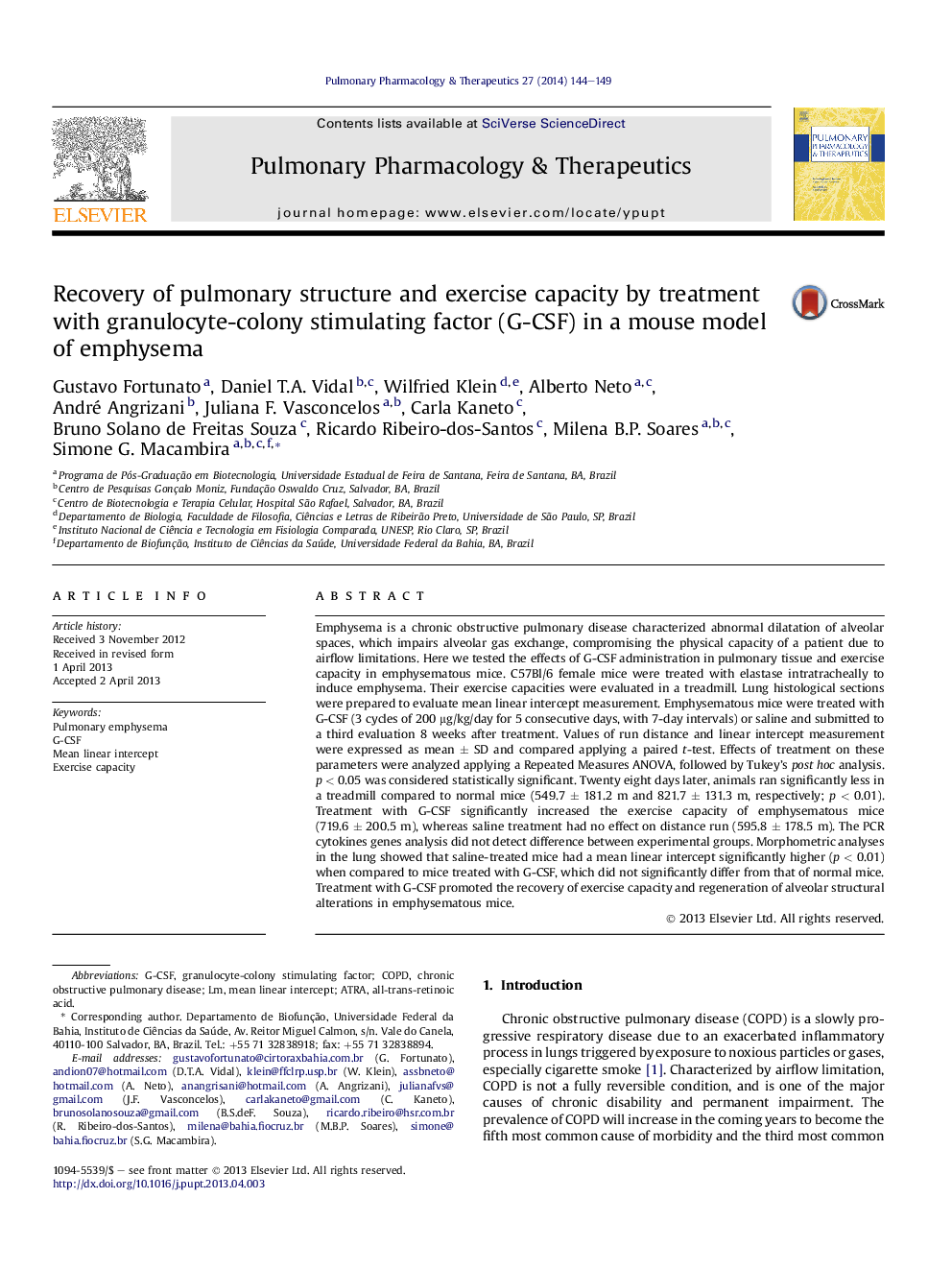| Article ID | Journal | Published Year | Pages | File Type |
|---|---|---|---|---|
| 2567099 | Pulmonary Pharmacology & Therapeutics | 2014 | 6 Pages |
Emphysema is a chronic obstructive pulmonary disease characterized abnormal dilatation of alveolar spaces, which impairs alveolar gas exchange, compromising the physical capacity of a patient due to airflow limitations. Here we tested the effects of G-CSF administration in pulmonary tissue and exercise capacity in emphysematous mice. C57Bl/6 female mice were treated with elastase intratracheally to induce emphysema. Their exercise capacities were evaluated in a treadmill. Lung histological sections were prepared to evaluate mean linear intercept measurement. Emphysematous mice were treated with G-CSF (3 cycles of 200 μg/kg/day for 5 consecutive days, with 7-day intervals) or saline and submitted to a third evaluation 8 weeks after treatment. Values of run distance and linear intercept measurement were expressed as mean ± SD and compared applying a paired t-test. Effects of treatment on these parameters were analyzed applying a Repeated Measures ANOVA, followed by Tukey's post hoc analysis. p < 0.05 was considered statistically significant. Twenty eight days later, animals ran significantly less in a treadmill compared to normal mice (549.7 ± 181.2 m and 821.7 ± 131.3 m, respectively; p < 0.01). Treatment with G-CSF significantly increased the exercise capacity of emphysematous mice (719.6 ± 200.5 m), whereas saline treatment had no effect on distance run (595.8 ± 178.5 m). The PCR cytokines genes analysis did not detect difference between experimental groups. Morphometric analyses in the lung showed that saline-treated mice had a mean linear intercept significantly higher (p < 0.01) when compared to mice treated with G-CSF, which did not significantly differ from that of normal mice. Treatment with G-CSF promoted the recovery of exercise capacity and regeneration of alveolar structural alterations in emphysematous mice.
